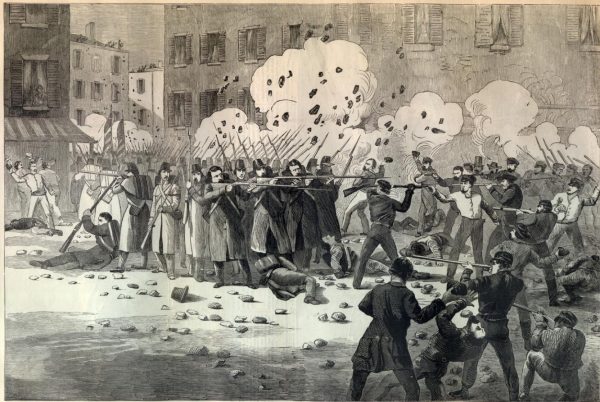Symposium Spotlight: To Baltimore or Bust: The Battle of Baltimore, April 1861
Welcome back to our spotlight series, highlighting speakers and topics for our upcoming symposium. Over the coming weeks, we will continue previewing of our speaker’s presentations for the 2025 Emerging Civil War Symposium. This week we feature Phillip Greenwalt’s topic.

To Baltimore or Bust: The Battle of Baltimore, April 1861
A mere five days after the capitulation of Fort Sumter in Charleston, South Carolina, violence erupted in the streets of Baltimore. On April 19, 1861, soldiers of the 6th Massachusetts Infantry arrived at President Street Station with plans to head across the city to Camden Station to continue their journey to the nation’s capital of Washington D.C. What unfolded next has been referred to as the Pratt Street Riots or the Battle of Baltimore and left a bystander, three soldiers and eight rioters dead. The action had a trickle-down effect on the role Baltimore played in the Civil War and the view of Federal authorities toward the metropolis nicknamed “Mobtown.”
Find more information and tickets for our 2025 Symposium by clicking here.

hi Phillip, Can you contact me at boutwell@alum.mit.edu. I’d like to follow up on the Baltimore riots of April 1861 as covered in
my biography of George Boutwell, who was the liaison between Mass. Governor John Andrew and President Lincoln in supplying troops and material to the national government in the early months of the war and who traveled to Washington through secessionist Maryland just days after the Baltimore attacks on Union soldiers. Boutwell: Radical Republican and Champion of Democracy (WW Norton, 2025) and http://www.jeffreyboutwell.com
many thanks!
The Arrival of Butler and his troops in Maryland in general was only a good thing for the Union cause. Two days after the incident described above saw the 8th Mass. arrive in Annapolis. The 8th Mass. along with the 7th NY were then forwarded along to the defense of Washington Butler
Former Mass. governor George Boutwell was Gov. Andrew’s military emissary to Lincoln in Washington and arrived in Annapolis about this same time, then traveling with the 8th Mass. and 7th NY to DC where he was told by Lincoln that these troops were “the only Northern realities” coming to the aid of the national government.
Slightly off topic, but important: the immediate actions of General Benjamin Butler.
Quickly responding to the Northern Troop Embargo that resulted after the Baltimore Riot of 19 April, Butler commandeered a ferry, loaded his troops, and steamed to Annapolis. In spite of orders from Maryland Governor Thomas Hicks, warning, “Do not land on Maryland soil,” General Butler occupied the grounds of the Federal-Government owned U.S. Naval Academy, repaired the torn-up tracks, and pressed his men forward by rail to Washington D.C. The isolated, woefully undefended Capital became energized by the arrival of thousands of New York and Massachusetts troops… Benjamin Butler’s “unauthorized” disregard of the Maryland Governor may have saved Washington for the Union.
yes, Butler deserves a lot of credit for opening the supply line to Washington DC. My biography of George Boutwell, just published by WW Norton, recounts how he traveled through Annapolis just days later, as military representative from governor John Andrew to the Lincoln government. On seeing the troops of the Massachusetts Sixth Regiment, Lincoln remarked, “you are the only Northern realities.” I’m having an interesting exchange with Phillip Maxwell about this episode.